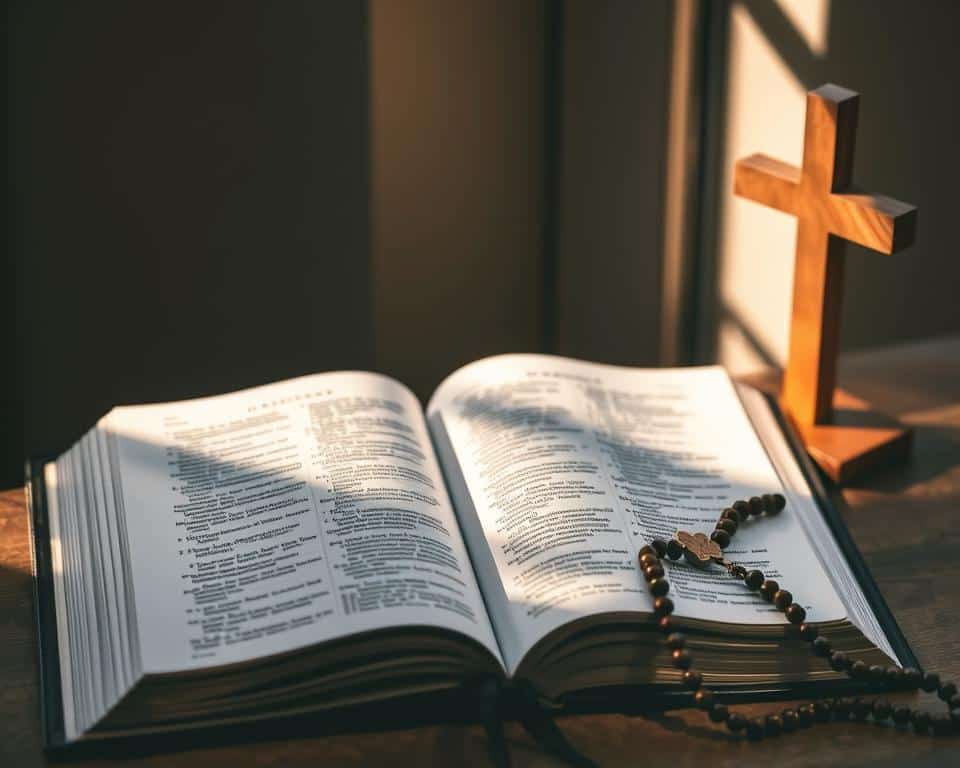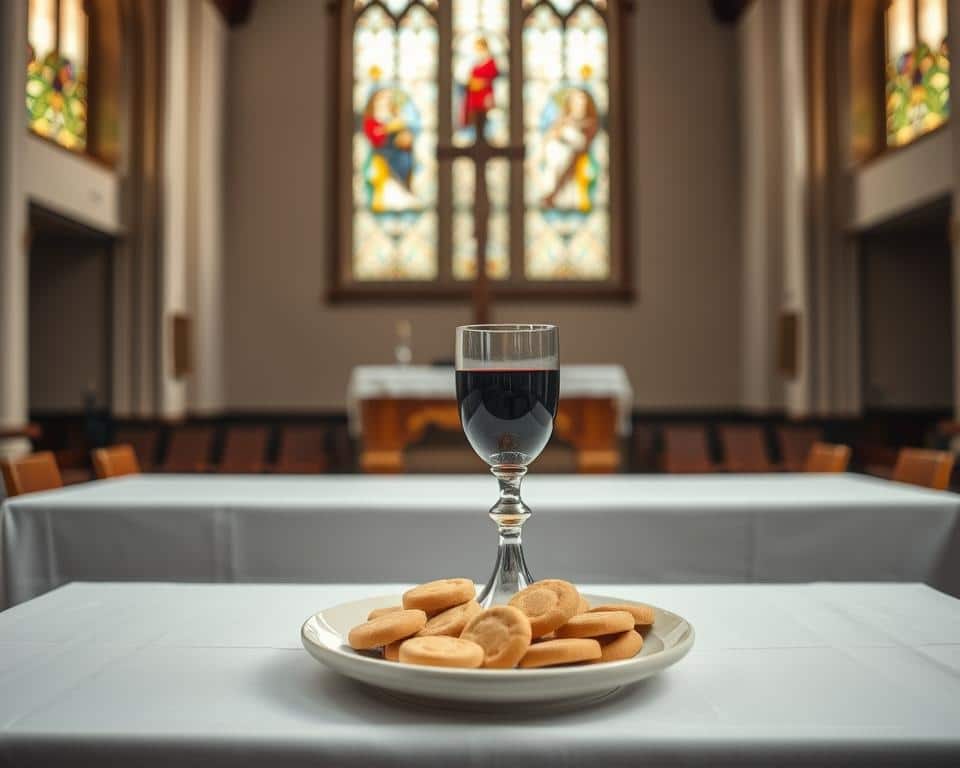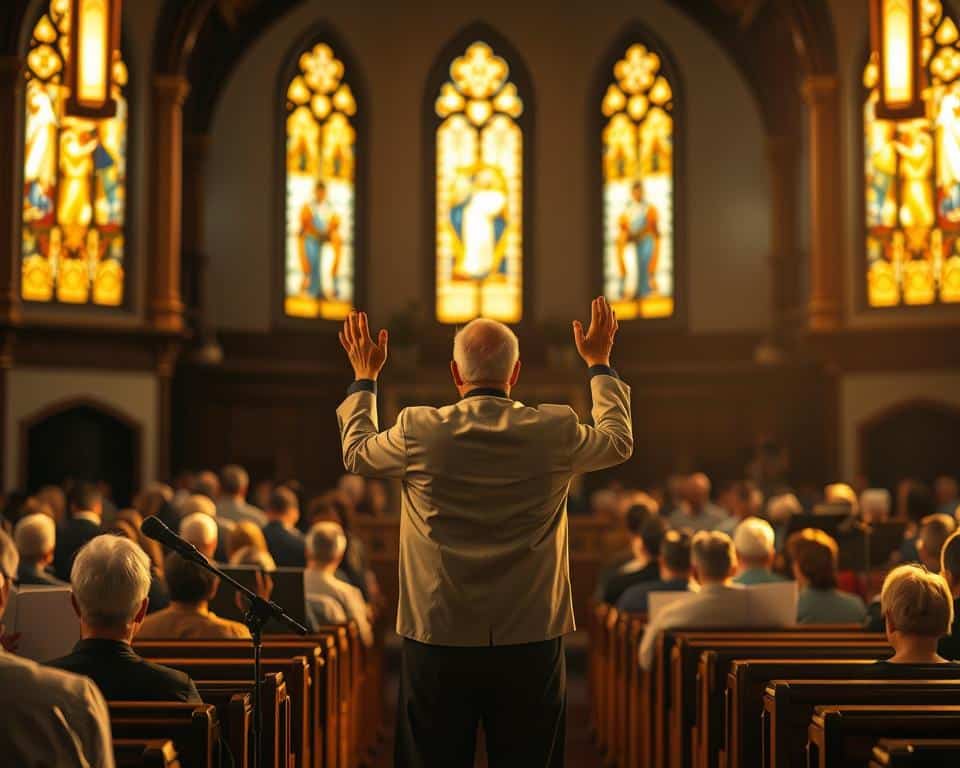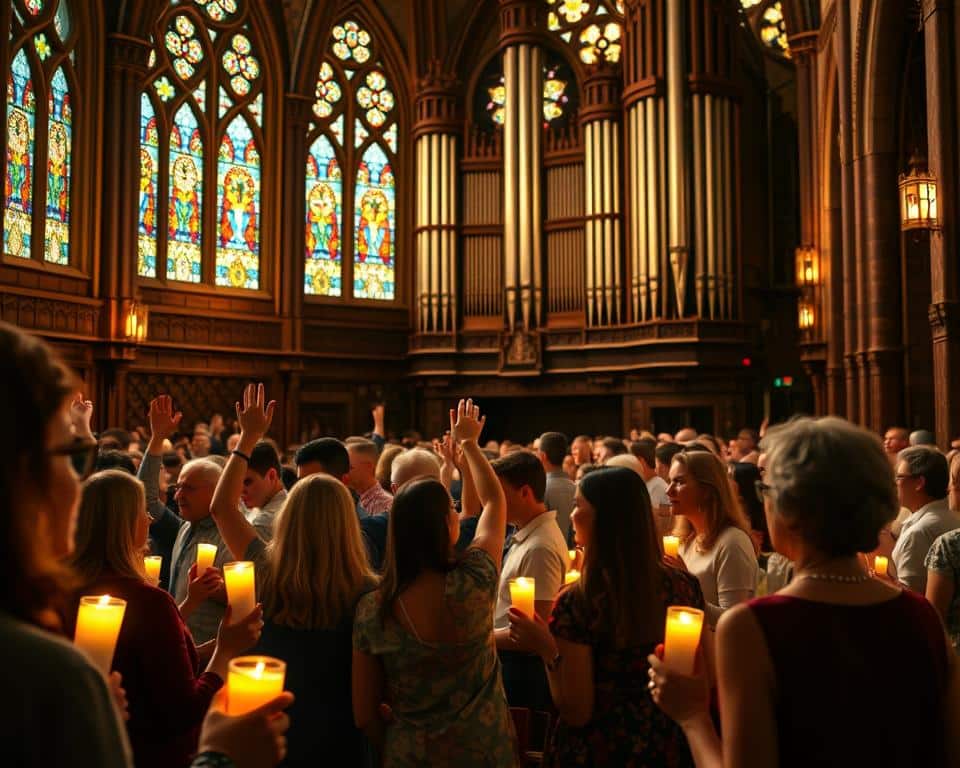“Fasting confirms our utter dependence upon God by finding in Him a source of sustenance beyond food.” — Dallas Willard. These words capture the heart of this ancient practice. When you set aside meals, you create space to focus on faith and prayer.
Many people in Scripture practiced this discipline, from Moses to Jesus. It’s not about deprivation but drawing closer to God. Psalm 42:2 describes it perfectly: “My soul thirsts for God, the living God.”
Through my own journey—including five 40-day fasts—I’ve seen how it strengthens trust in God. It deepens prayer life and reshapes priorities. You’ll discover practical ways to start safely and grow spiritually.
This isn’t just personal; it connects you with others. Together, we align our hearts with God’s purpose. Let’s explore how this timeless practice can transform your walk with Him.
What Is Christian Fasting?
The Bible shows fasting as a powerful act of faith, not just skipping meals. It’s about humbling yourself before God, as Daniel did when he ate no food for three weeks (Daniel 10:2-3). The Hebrew word tsom and Greek nesteuo both mean to abstain—physically and intentionally.
The Biblical Definition of Fasting
True fasting means voluntarily setting aside food to seek God earnestly. Jesus modeled this in the wilderness for 40 days, relying solely on the Father (Matthew 4:1-11). Unlike modern “fasts” from social media, biblical fasting redirects hunger toward God’s presence.

How Fasting Differs from Other Disciplines
Fasting isn’t just prayer or giving—it’s a physical act of dependence. While prayer speaks to God, fasting silences your body to hear Him. The early church paired both when seeking the Holy Spirit’s guidance (Acts 13:2).
Almsgiving helps others; fasting reshapes you. As Isaiah 58 shows, God honors fasts that transform hearts, not just habits. Together, these disciplines deepen faith, but fasting uniquely empties you to be filled by God.
Why Follow a Christian Fasting Guide?
When facing impossible odds, biblical heroes relied on this act of faith. Esther called for a three-day fast before approaching the king—a decision that saved her people (Esther 4:16). Fasting isn’t just personal; it invites God’s help into crises.

Humility grows when you empty yourself. King David fasted to seek God’s mercy, showing true repentance (Psalm 35:13). Like 2 Chronicles 7:14 promises, humility opens doors to healing—for you and your nation.
The early church fasted before major decisions. In Acts 13:2-3, Paul and Barnabas were set apart for missions after prayer and fasting. Big choices demand divine clarity.
This practice reshapes your daily life. It breaks chains of habit and refocuses priorities. Jesus expected His followers to fast (Matthew 9:15), not as a rule but as a rhythm of faith.
History proves fasting moves God’s power. During WWII, prayer and fasting coincided with the miracle at Dunkirk. When believers unite, they can change the world.
Types of Christian Fasts
God’s word highlights various ways to set aside physical needs for divine focus. Whether for repentance, clarity, or deeper prayer, each type serves a unique purpose. Below are four biblical approaches, with durations and precautions to help you choose wisely.
Liquid Fast (40 Days)
This type allows water, broth, or juice while avoiding solid food. Jesus modeled this for 40 days in the wilderness (Matthew 4:2). It’s manageable for extended periods but requires hydration.
Approved liquids:
- Water (essential for body function)
- Vegetable juice (like Daniel’s diet in Daniel 1:12)
- Bone broth (for electrolytes)
Partial Fast (10–21 Days)
Daniel and his friends ate only vegetables and drank water for 10 days (Daniel 1:12). This limits certain foods but isn’t as extreme as an absolute fast.
Modern adaptations: Some exclude meat, sweets, or processed foods. Always consult Scripture and a doctor for balance.
Absolute Fast (3 Days)
No food or water—only for short periods. Esther called a 3-day absolute fast (Esther 4:16), but this risks body strain. Never attempt beyond 72 hours without medical oversight.
Warning: Dehydration can occur rapidly. Reserve this for dire spiritual emergencies.
Intimacy Fast (1 Corinthians 7:3–6)
Couples may pause marital relations to focus on prayer. Paul advises mutual consent and a clear timeframe. This isn’t about deprivation but redirecting energy toward God.
Key reminder: Like all fasts, the goal is drawing closer to God, not legalism.
Preparing for Your Fast
Preparing well ensures your time of devotion is fruitful and safe. Start small—skip one meal or try a partial fast for a day. This builds confidence and honors your health.
Three days before, cut caffeine and sugar gradually. Withdrawal headaches can distract from prayer. Replace coffee with herbal tea or water.
Plan your schedule wisely. Avoid high-stress periods like work deadlines. Free up time for Scripture and reflection.
Gather tools to focus your heart:
- A prayer journal to track insights
- A Scripture reading plan (try Psalms or Matthew)
- Electrolytes or broth for longer fasts
Tell loved ones about your purpose. They’ll support you and understand energy shifts. At work, a simple heads-up avoids misunderstandings.
Finally, pray for clarity. Ask God to reveal His goals for this season. Preparation turns discipline into deeper faith.
Health Considerations During Fasting
Your body is God’s temple, and caring for it during times of devotion is crucial. While Scripture encourages this discipline, your health should never be compromised. Listen to your body—especially during extended periods of 3+ days.
When to Consult a Doctor
Some conditions require professional guidance before beginning. Always talk to your doctor if you have:
- Diabetes (requires glucose monitoring)
- Pregnancy or nursing (affects baby’s nutrition)
- History of eating disorders
- Chronic conditions like anemia or kidney disease
Managing Common Side Effects
Most physical responses are temporary but manageable. For headaches:
- Drink water with lemon slices
- Rest in a quiet, dark room
- Apply peppermint oil to temples
For dizziness (orthostatic hypotension):
- Rise slowly from sitting positions
- Increase water and electrolyte intake
- Check weight daily if fasting beyond 7 days
Stop immediately if you experience:
- Confusion or slurred speech
- Persistent vomiting
- Irregular heartbeat
Break your fast gently with soft foods like bananas or broth. Your faith journey should strengthen both soul and body.
How to Stay Focused on Prayer and Scripture
Hunger pangs can become powerful reminders to turn your heart toward God. When your stomach growls, pause and pray. This simple habit transforms physical cravings into spiritual connection.
Replace meals with Scripture. Read a Psalm aloud during breakfast time. Try Isaiah 58:6–8 to remember why you’re fasting—it’s about justice, mercy, and drawing near to God.
John Wesley’s method works well: pray at set intervals. At 9 AM, thank God for His blessings. At noon, confess sins. By 3 PM, intercede for others. Structure keeps your focus sharp.
Feeling lightheaded? Listen to an audio Bible. Apps like YouVersion let you hear God’s word while resting. Ask the Holy Spirit to renew your mind even when your body weakens.
Document insights in a journal. Write down prayers, verses, or breakthroughs. Later, you’ll see how God moved. As Jesus said, “Man does not live on bread alone, but on every word from God” (Matthew 4:4).
Join others for accountability. Churches often fast together—like the early believers in Acts 13. Shared commitment lifts hearts toward heaven.
Taking the Next Step in Your Faith Journey
Faith grows when shared—start small and invite others to join you. Like John Wesley’s weekly practice, consistency deepens your connection to God. Try a 12-hour fast first, perhaps skipping breakfast to pray for your community.
Pair up with a friend for encouragement. Dietrich Bonhoeffer believed faith flourishes together. Use saved meal funds to support a local food pantry, blending devotion with service.
Many churches host group initiatives, uniting hearts in prayer. Ask about upcoming plans or propose one. We’ve seen lives transformed when believers seek God collectively.
Need structure? Download our free 30-day prayer calendar. Each step forward—whether alone or with others—brings you closer to God’s purpose for your life.





